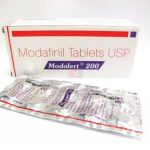What is herbal medicine?
Ancient societies gave birth to herbal medicine. It entails plants as medicine to cure sickness and improve overall health. Some herbs contain robust components and should get used with caution, just like pharmaceutical drugs. Many pharmaceutical drugs depend on synthetic copies of naturally occurring plant components. According to Herbal research, the foxglove plant produces the heart medicine digitalis.
Herbal medicine with active components
Many herbal remedies have unknown active components. Some pharmaceuticals include only one obtained from plants. Herbalists believe that if an active element is utilized separately from the rest of the plant, it will lose its effectiveness or become less safe.
According to Herbal research, the plant meadowsweet contains salicylic acid, used to manufacture aspirin. Although aspirin can cause stomach bleeds, meadowsweet has additional chemicals that protect the stomach lining from irritation caused by salicylic acid.
The effect of the complete plant is higher than the sum of its components. Herbal medicine’s nature, according to critics, makes giving a precise dosage of an active ingredient difficult.

Specific herb medicinal use
Herbal medicine attempts to restore the body’s natural equilibrium, allowing it to heal itself. Herbs affect various physiological systems in different ways.
Herbal medicine typically uses the following herbs, as well as their traditional purposes:
Echinacea – to aid the body in fighting illness by stimulating the immune system Boils, fever, and herpes are among the conditions.
Dong quai (dang gui) – premenstrual tension, menopausal symptoms, and period pain are all examples of gynecological issues. Dong quai has reduced blood pressure in some trials.
Garlic – reducing blood lipids and cholesterol levels to lessen the risk of heart disease (a type of blood fat). Garlic gets used to treat colds, sinusitis, and other respiratory condition because of its antibacterial and antiviral qualities.
Ginger – is effective in nausea treatment, especially motion sickness and morning sickness numerous trials.
Ginkgo biloba – tinnitus and poor blood circulation are two conditions routinely treated with this medication (ringing in the ears).
Ginseng – is usually used to relieve weariness, such as during disease recuperation. Ginseng gets used to lowering blood pressure and cholesterol levels, and excessive use gets linked to an increase in blood pressure.
Hypericum perforatum – st. John’s Wort is a common name for this plant, appears to be as helpful as some pharmaceutical antidepressants in treating mild to moderate depression, and gets used to treating insomnia and anxiety.










